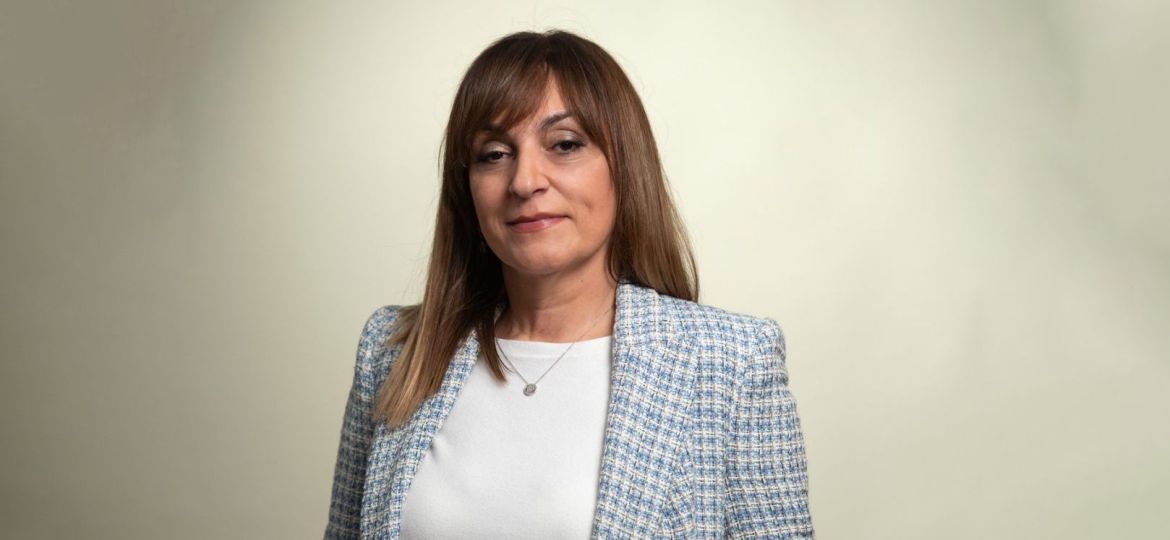
EXPERTISE, STABILITY AND TRUST AS KEY FACTORS FOR SUCCESSFUL BUSINESS
Mirela Pavićević, CEO of Underpin doo
The company Underpin doo is listed on the map of women’s entrepreneurship in Montenegro in the field of construction with an idea to, in accordance with its name (in English: underpin, support, …), provide expertise, stability and trust in the area of its operating. The company’s focus is on services such as design, finishing works in construction, adaptation of facilities for people with disabilities, equipping office spaces with furniture and technical maintenance of facilities. Such a wide range of services is a result of the desire to provide clients with opportunity to find everything necessary for creating a functional business space in one place according to their wishes and needs. To our satisfaction, the market has recognized the benefits of such comprehensive offers, both due to saving time and money for project implementation and due to simpler communication which excludes the transfer of responsibility from one to another executor of individual project phases, said Mirela Pavićević, director of Underpin doo, in her interview for Glasnik.
We would appreciate if you could tell us more about the company itself and its establishment?
M. Pavićević: The establishment of the company and my independent professional engagement occurred in a particular business context, which required making a choice between continuing my business engagement with my employer at that time or starting my own business. The choice between a familiar environment and routine business obligations, including financial security on one side, and challenges and uncertainties with significant opportunities for further professional development on the other, was incredibly easy. Education and years of work experience in the field of construction and project management, which I started acquiring from a position of an intern in the project bureau of the then-prestigious Yugoslav company Aeroinženjering in Belgrade, to the position of the technical director at Societe Generale Bank Montenegro and one of three Ambassadors for Energy Efficiency in the international and intercontinental banking group Societe Generale, served as the “foundational capital”, which I relied on at the moment of starting my independent business. Even though I didn’t question my decision, family and friends were a significant support, necessary for making that decision sustainable and setting the Underpin doo on solid ground. Now, after a few years spent in private business, I am confident that it was the right decision, which to some extent inspired some of my colleagues to sharpen their focus on their personal and professional qualities and change dissatisfaction with work in companies for realizing their full creative potential through unrestrained independent work.
What are the main activities and services provided by the company?
M. Pavićević: The company Underpin doo is listed on the map of women’s entrepreneurship in Montenegro in the field of construction with an idea to, in accordance with its name (in English: underpin, support, …), provide expertise, stability and trust in the area of its operating. The company’s focus is on services such as design, finishing works in construction, adaptation of facilities for people with disabilities, equipping office spaces with furniture and technical maintenance of facilities. Such a wide range of services is a result of the desire to provide clients with opportunity to find everything necessary for creating a functional business space in one place according to their wishes and needs. To our satisfaction, the market has recognized the benefits of such comprehensive offers, both due to saving time and money for project implementation and due to simpler communication which excludes the transfer of responsibility from one to another executor of individual project phases. What I recognized as extremely important at the beginning of my new business career, in order to make such an offer sustainable at all, is the necessity for small entrepreneurs to cooperate towards the sole common goal of successful project realization and client satisfaction. Fortunately, I managed to establish exceptional and continuous cooperation with excellent companies and architectural bureaus based on equal responsibility for the success of the entire project, regardless of who among the participants is formally responsible for it. One of the results of such connection and cooperation is the brand OFFICE+, which combines the execution of interior design works for the company Underpin doo with the business premises equipping of the partner company Midline doo and this cooperation resulted in several successfully completed projects.
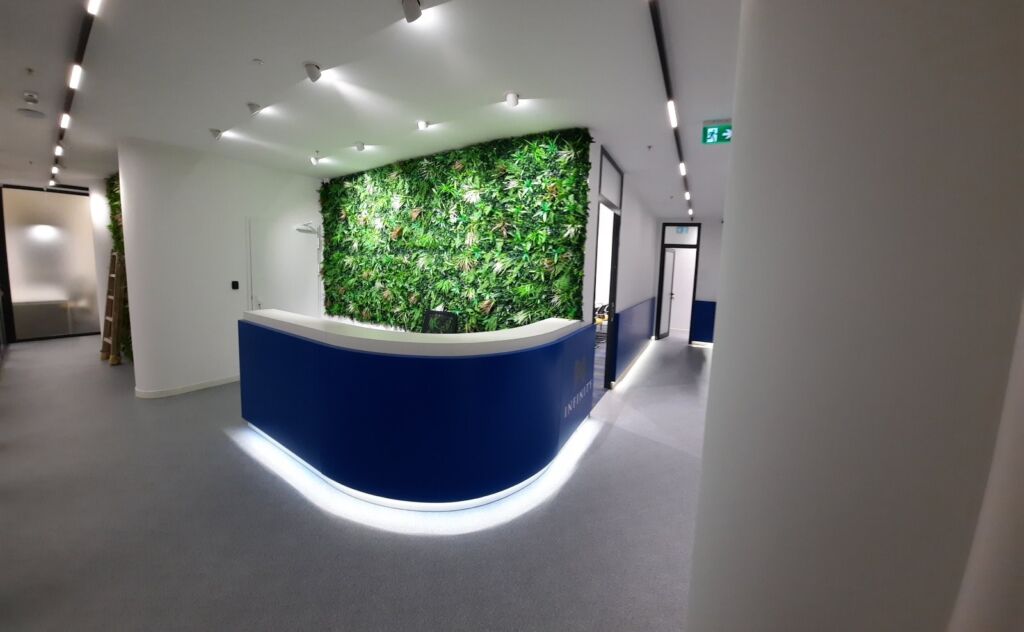
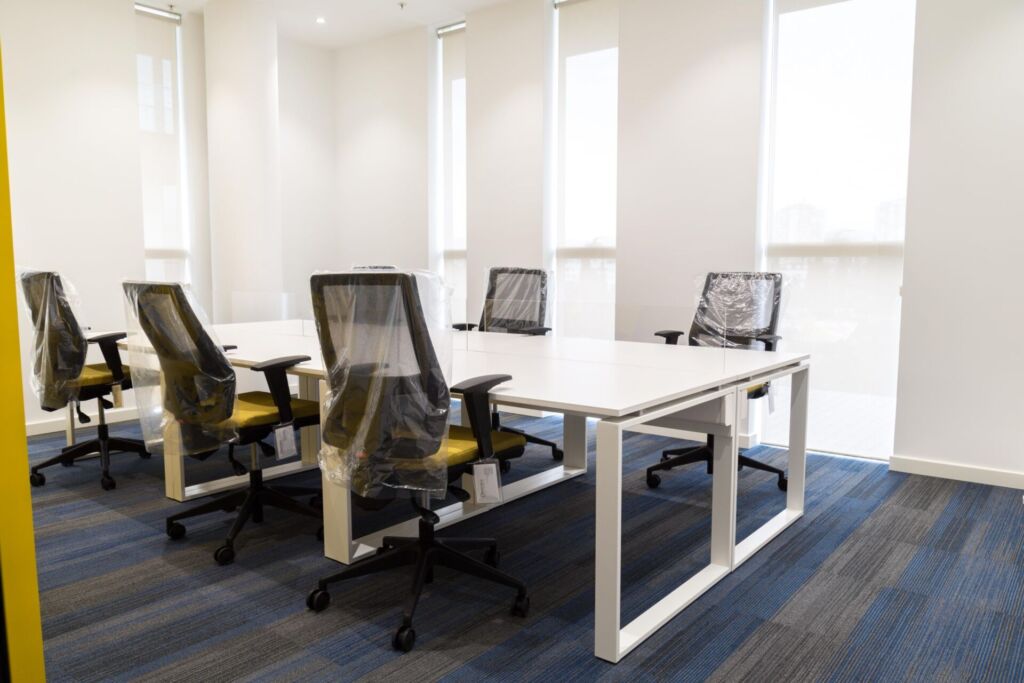
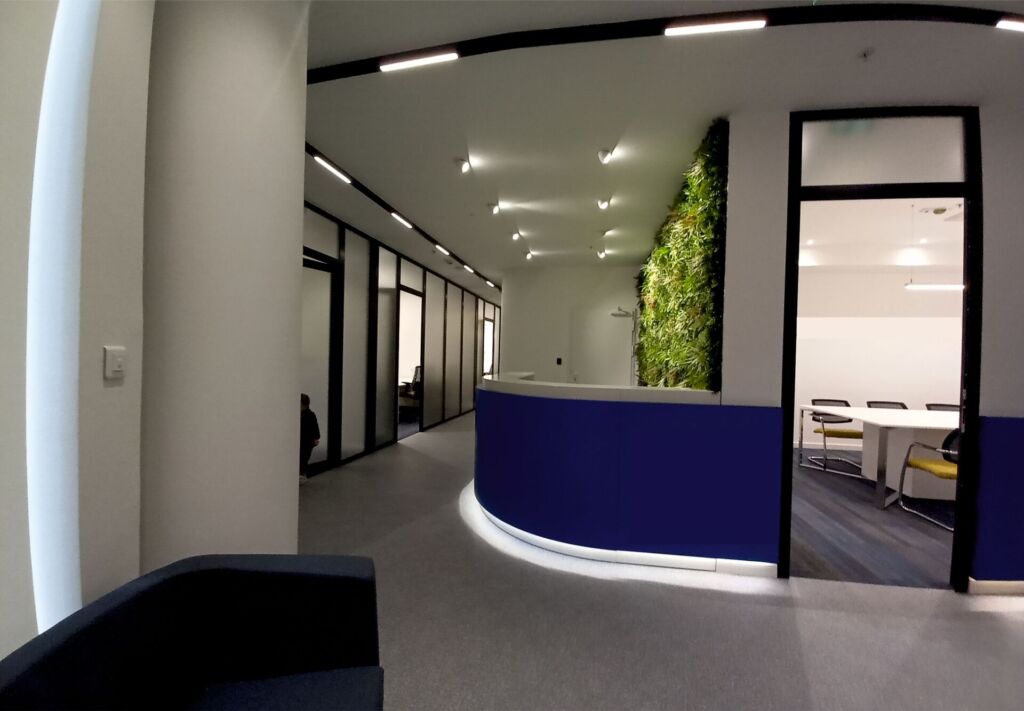
How do you perceive your role as a woman in the construction industry, and could you share your experience regarding the challenges and advantages you faced as a woman in this sector?
M. Pavićević: Thanks to changes in the society in the middle of the last century and the geographic position of the country, I entered this industry at a time when the representation of women was significant. Perhaps there were sporadic opinions that this wasn’t a profession for a woman, but those were truly rare cases. Therefore, based on personal experience, I consider my role as a woman identical to a man’s role in this field and is based on general values – maximum dedication to ensuring that the profession we engage in is recognized for its true values. It’s about stopping the decades-long decline of the profession’s reputation through professionalism and dedication. As I mentioned earlier, presence of women in this industry is not rarity, but the fact remains that there are fewer women in this industry compared to some other, which is probably more the question of personal preferences than limitations in choices. Fortunately, I haven’t experienced situations only conditioned by gender, but I don’t rule out the possibility that it might be due to personal attitudes and views regarding any type of divisions, which I naturally do not accept. For instance, while I was on maternity leave after the birth of my twin daughters, who are now about to choose a faculty, which we categorize as challenging, easy, boring, expensive… but never as male or female, the attempt of my removal from the managerial position I held before the maternity leave, occurred. I never linked this to my gender or the nature of my absence. I believe that the initiators of this, for me, quite stressful situation would have done the same to a male colleague in case of his longer absence for other reasons while occupying the managerial (my) position. Business interests, in my opinion, have largely erased gender division. In any business segment, women are recognized through their actions as competent, professional and dedicated participants, making them completely equal and sometimes even giving them an advantage with employers compared to the opposite gender. Being a woman in business represents much greater challenge in all aspects beyond business. Here, gender differences are much more evident in terms of the amount of free time. In this regard, personally, I wouldn’t change anything as my husband, two daughters and I make up a well-coordinated team of equal participants and mutual support.
How do you assess the business climate for the development of women’s entrepreneurship in Montenegro?
M. Pavićević: When I took on the role of an entrepreneur, I realized women can truly count on the society’s support. I was surprised by the abundance of information regarding support for women entrepreneurship through various channels, from financial to educational. This is extremely significant, especially for young women entrepreneurs who are brave and willing to take initiative, but might lack sufficient resources. They greatly need that initial wind in the back. Our company is also a beneficiary of such an arrangement through the IDF, which came at the right time and enabled the realization of a significant project we were working on.
What are the most important projects or references that the company Underpin doo has accomplished in its areas of operation?
M. Pavićević: Our most significant projects are undoubtedly those which we realize through all phases, from design, construction to furnishing, and a kind of “turnkey” project. Equally important are the projects where we participated in just one phase. Given our extensive experience in designing and executing projects in facilities for banking services, our most notable reference is the cooperation with Adriatic Bank AD Podgorica, involving executed works and the furnishing of branches in Podgorica, Tivat, and Budva. Recently, we completed a project involving the rebranding of the bank’s facilities in several cities in Serbia. We are certainly proud of projects completed for other clients such as Zapad Bank, Tivat Airport, several medical centers, IT companies and various business premises, both in the public sector and for the needs of domestic and international companies in Montenegro.
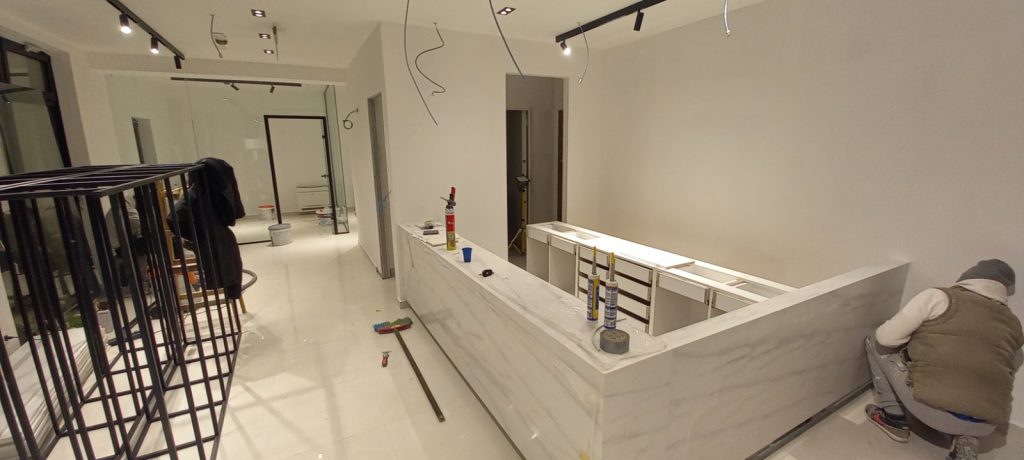
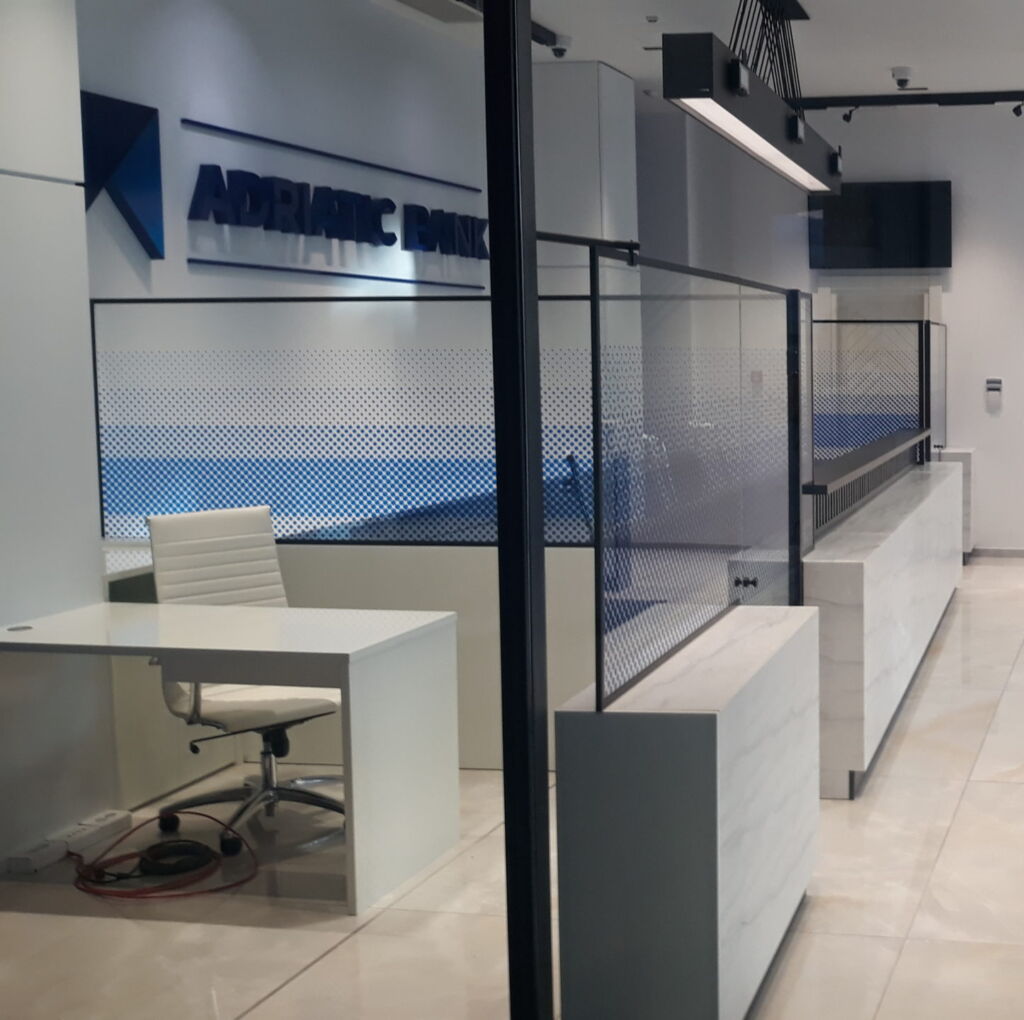
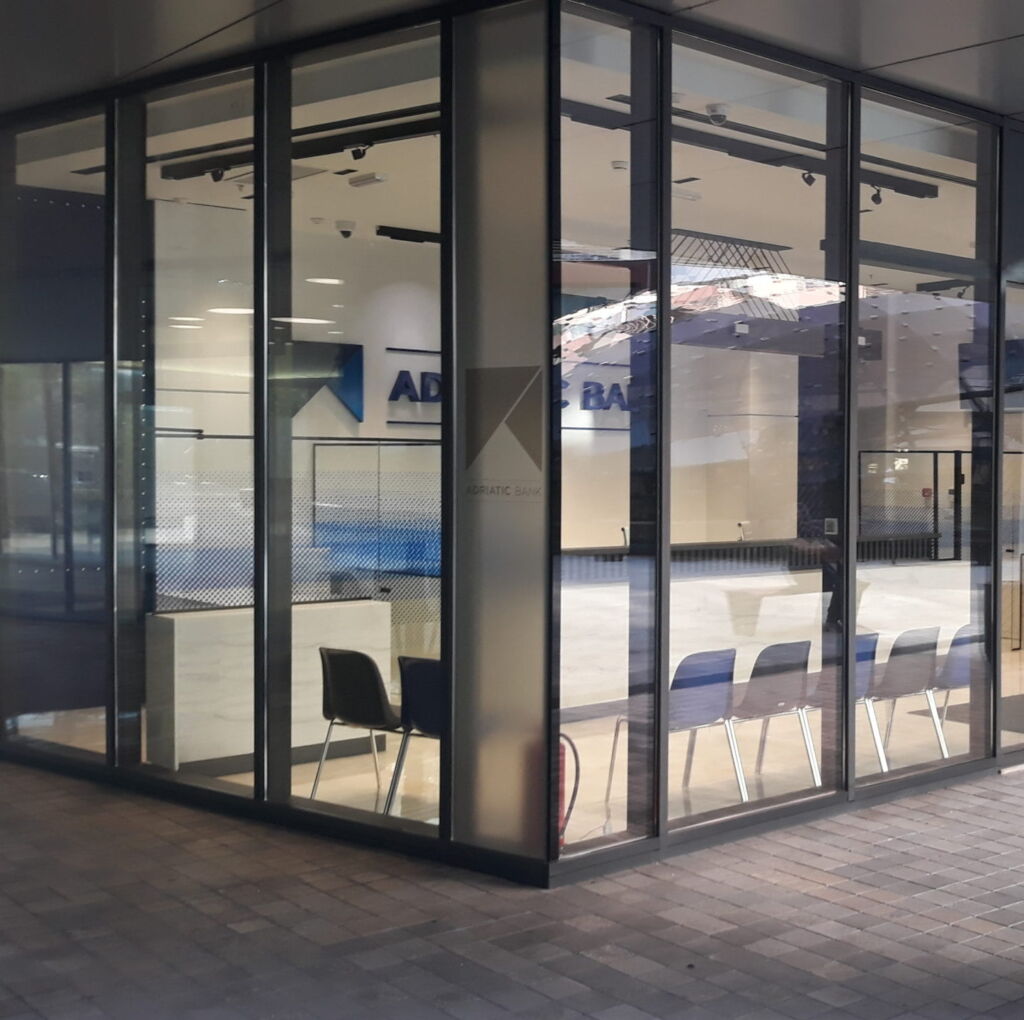
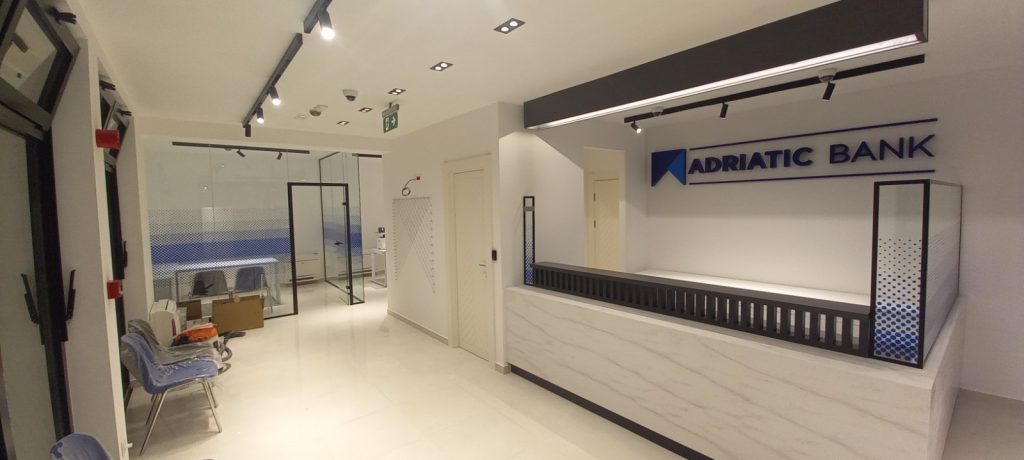
Could you tell us more about Underpin doo role in carrying out finishing works in construction? What types of construction projects are encompassed by your services?
M. Pavićević: The scope of services in the field of finishing works in construction includes all the necessary tasks for a transition of the building from “shell & core” (a term synonymous with the phase of completed rough construction works and the facade) to a stage ready for furnishing. This certainly involves executing all planned installations, which we carry out in cooperation with partner companies. Regarding the types of projects we undertake, they vary in scope and form based on the needs and purpose of the building, encompassing conceptual interior designs and/or the main project with all its phases. We are dedicated to ensuring projects to be done and presented to the client as precisely as possible, which sets the good preparation for successful implementation.
What is Underpin doo’ involvement in addressing architectural barriers and improving accessibility to buildings? What are the latest innovative products or solutions you’ve developed in this field?
M. Pavićević: The need to adapt public facilities for persons with disabilities was evident even before the adoption of the 2009 Regulation that regulates this area, but this primarily human obligation isn’t systematically implemented, unfortunately. In this field, we’ve tried to offer a comprehensive service to the market—from designing projects to adapting facilities for the access and stay of persons with disabilities to executing the works. As a result, we’ve paved miles of tactile paths, put access ramps, numerous markings, and plans in Braille. We also presented a part of our offer in this field at one of the recent construction fairs in Budva. As legal acts in this area have standardized elements for this purpose, the only area for improvement lies in the choice of materials and the methods of constructing these elements to truly adapt them for their purpose and to resolve the issue of access to buildings for all users in the long term. Otherwise, the fundamental goal—facilitating the functioning of our fellow citizens for whom this adaptation is intended—is not achieved.
What are the biggest challenges you face in your business?
M. Pavićević: In this industry, the biggest challenge lies in finding skilled personnel or individuals dedicated to acquiring the necessary knowledge. The lack of motivation across all generations is a general issue in terms of human resources. Another problem I see is the gradually diminishing, but still expressed gap caused by slow and often inadequate digitization of public administration. Many procedures still require personal visits to institutions and waiting for the submission or receipt of “original” paper documents, which, from my perspective, is inconceivable in developed societies that utilize and apply new technologies and follow environmental protection trends. There is the same situation in the private sector, which is generating piles of paper waste due to a lack of awareness about the green deal and the importance of personal contribution in creating a better society amidst technological advancements we are witnessing. Lastly, but perhaps the most significant challenge is to be a good manager of one’s time and effectively prioritizing to ensure a fulfilling life overall. Financial stability is crucial to everyone, but the pursuit of money often leads to significant sacrifices, so considerable contemplation is required concerning balancing professional and personal life.
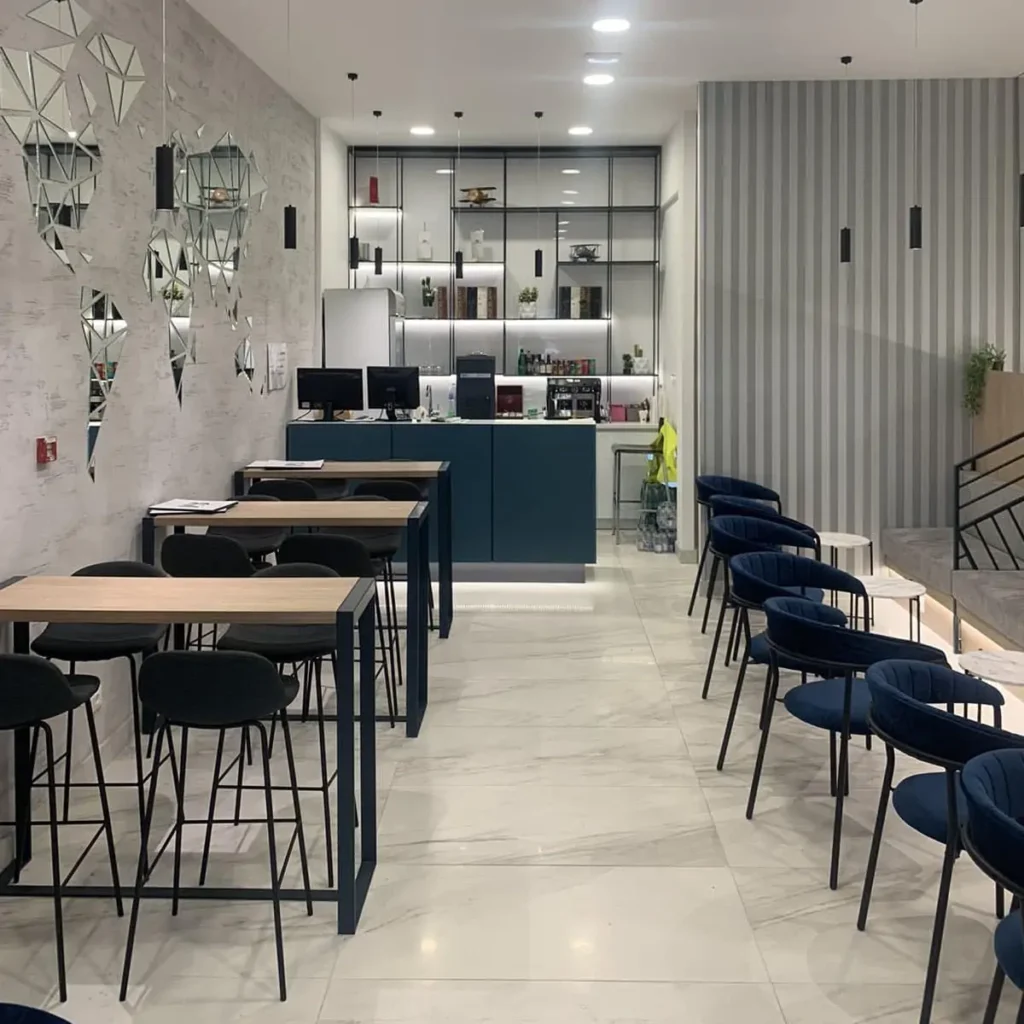
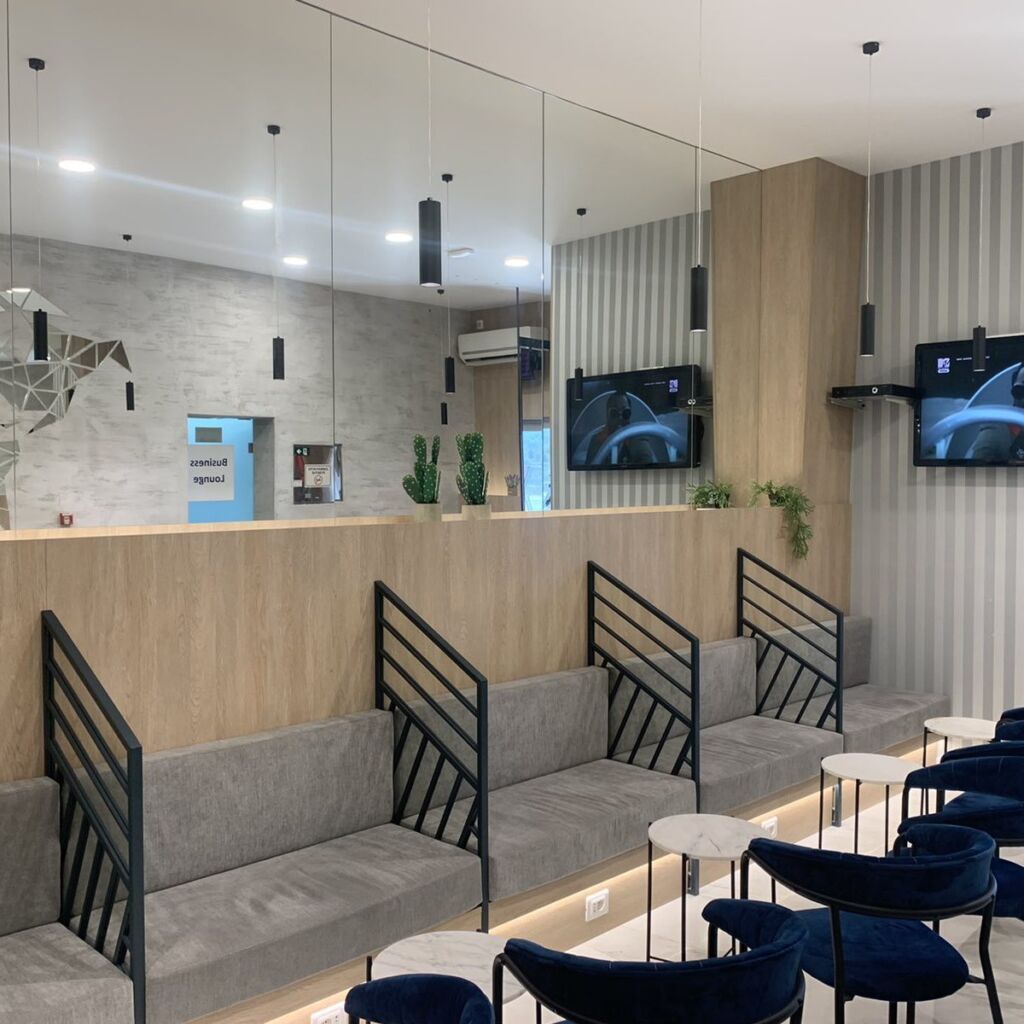
How do you plan to grow and expand in the future? Do you have plans for new services, products, or markets you’d like to focus on?
M. Pavićević: My family and close associates are witnesses that developing new ideas and planning are my favorite activities. When a good idea is properly analyzed and planned, the implementation becomes less an obligation and more the pleasure, especially if the outcome is successful. Given that we’ve achieved a lot in developing the company over these past few years, most importantly securing our own business space, quality partners, and clients, we continue to actively pursue the further development of our services, expanding their scope with new techniques, materials, design, and actively following trends from the developed countries. In addition to this aspect of development, we’ve recognized the need for more intensive work on the digital transformation of internal processes to the extent possible in our business. Presently, we’re considering the assistance offered in our daily work by AI technology, hoping it will serve its purpose as any tool, enhancing business quality and saving time on task execution where feasible. The aforementioned successful project in a market outside Montenegro was a significant assessment of our capacities and serves as confirmation of our potential future presence in that and other markets
December Bulletin of Chamber of Commerce of Montenegro can be read HERE.
